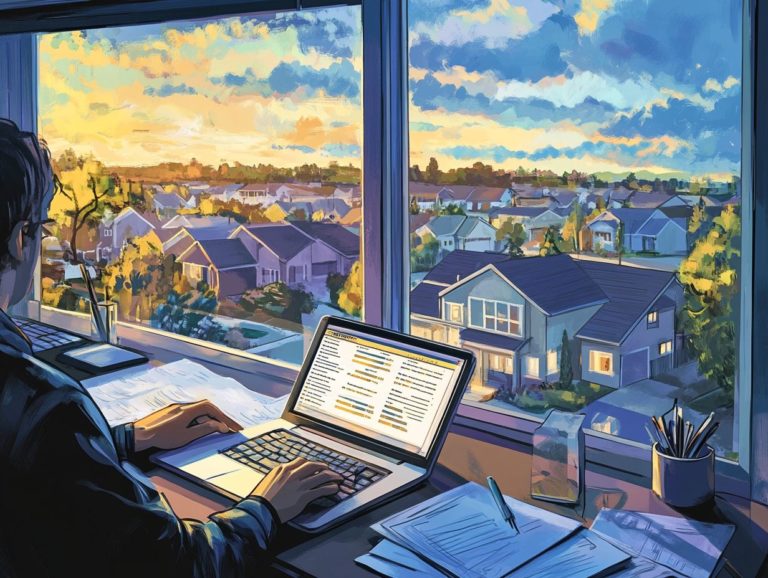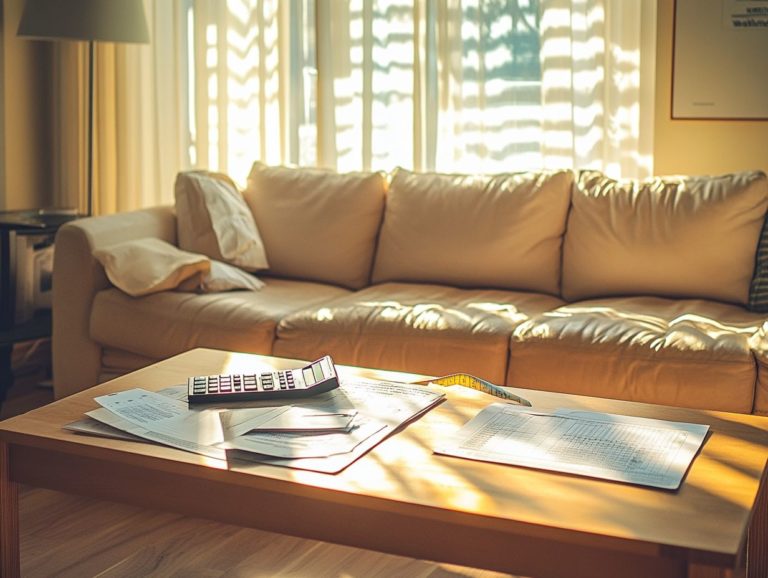Understanding Homeowner Responsibilities
Homeownership is an immensely rewarding journey. Yet, it carries unique roles and responsibilities that you should be well-acquainted with.
From maintaining your property to handling insurance needs and managing finances, these responsibilities can feel overwhelming at times.
This guide is designed to explain important responsibilities of homeowners. You’ll find valuable tips for upkeep, insights on repairs, and expert advice for financial management.
Arm yourself with the knowledge necessary to protect your investment and create a secure haven for your family.
Contents
- Key Takeaways:
- Roles and Responsibilities of a Homeowner
- Maintaining Your Property
- Insurance and Liability
- Dealing with Home Repairs and Renovations
- Managing Finances as a Homeowner
- Preparing for Natural Disasters
- Frequently Asked Questions
- What do homeowners need to know about their responsibilities?
- What are some common examples of homeowner responsibilities?
- Do homeowner responsibilities differ by location?
- What are the consequences of neglecting homeowner responsibilities?
- Are homeowner responsibilities transferable?
- How can homeowners stay informed about their responsibilities?
Key Takeaways:
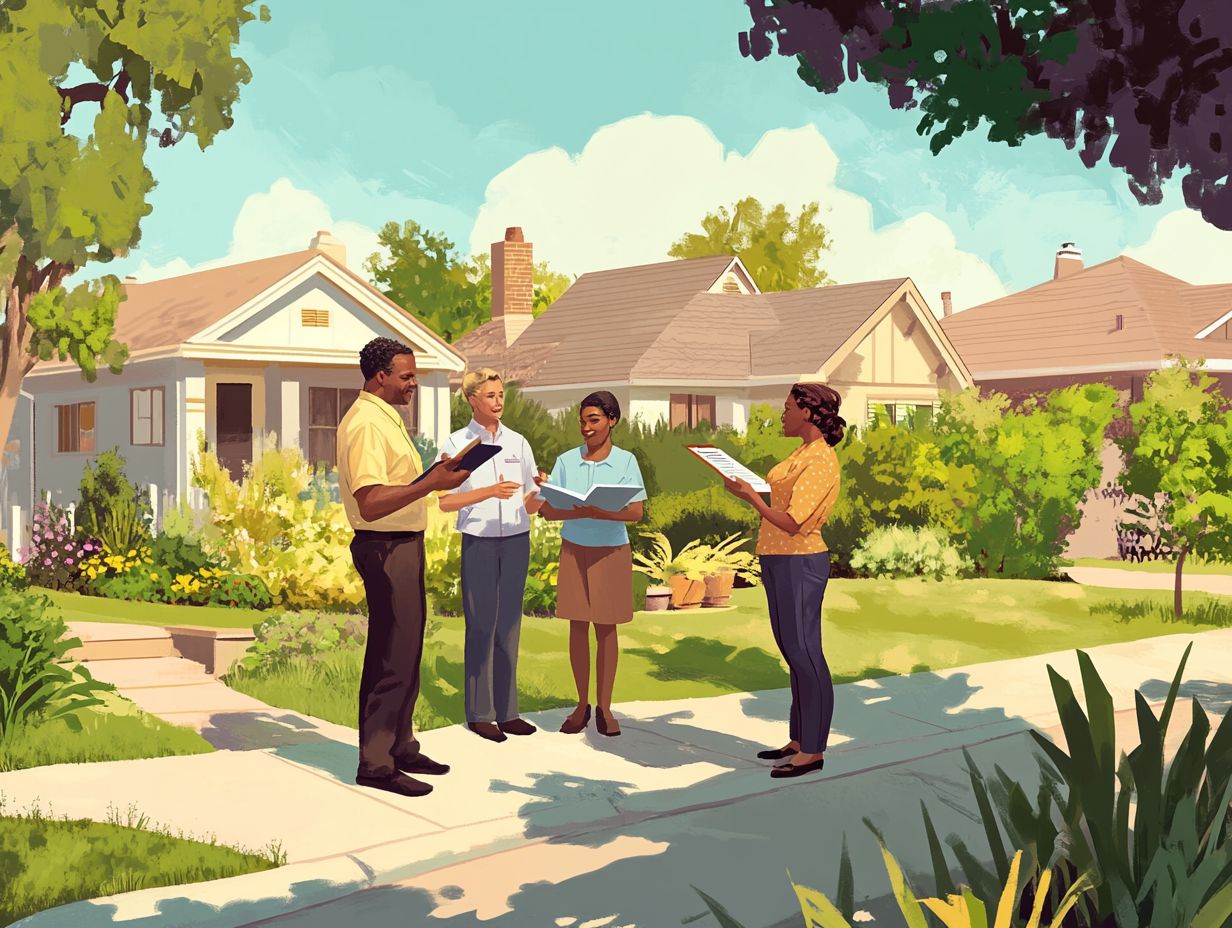
Know your role as a homeowner it s your foundation!
Maintaining your property is crucial for its value and safety. Proper insurance coverage keeps you protected.
Roles and Responsibilities of a Homeowner
As a homeowner, your responsibilities go beyond making mortgage payments. You engage in obligations that are crucial for your property and community.
This includes maintaining your home, participating in community affairs, adhering to legal requirements, managing finances wisely, and enhancing your home equity.
These duties enrich the quality of life for both you and your neighbors. Recognizing them is vital for exercising your rights as a homeowner and building enduring equity.
Understanding Your Role as a Homeowner
Your role involves making timely mortgage payments and managing property taxes. It also includes recognizing your rights and commitments to maintain a safe home.
Actively participating in community meetings and staying informed about local regulations can safeguard your interests and advocate for essential improvements.
Building equity in your property is vital. It contributes to your long-term financial health and enhances the value of your investment.
Being well-versed in these aspects helps you navigate challenges with confidence and foster a productive relationship with your property.
Maintaining Your Property
Maintaining your property is essential for its value and safety. Regular attention to repairs, landscaping, and maintenance is key.
By dedicating time and effort to these responsibilities, you enhance your home’s appeal and safeguard your investment for the future.
Tips for Keeping Your Home in Good Condition
Embrace regular maintenance and energy efficiency. Schedule routine plumbing inspections to prevent leaks.
Maintaining your landscaping is equally important. Well-kept outdoor spaces enhance your home’s curb appeal and protect its structure.
Consider upgrading to energy-efficient appliances. They help lower your utility bills and contribute to a more sustainable environment.
By committing to these practices, you can improve your property s longevity and comfort, leading to substantial savings on repairs and energy consumption. Regular upkeep is an investment that truly pays off in the long run.
Insurance and Liability
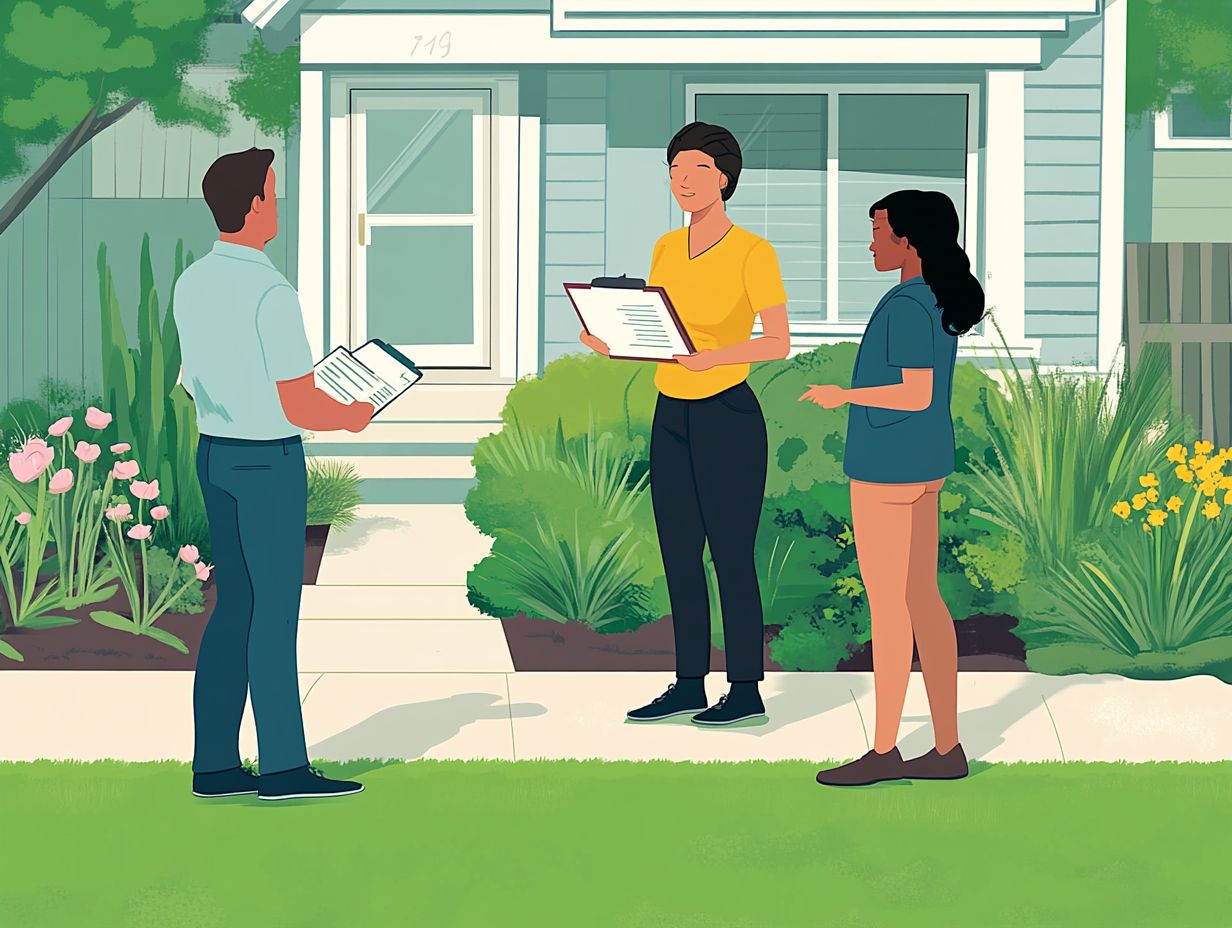
Understand your homeowner insurance and liability. This knowledge protects you from risks and clarifies your obligations.
Types of Insurance Coverage for Homeowners
Homeowner insurance is a must. It protects you from financial losses due to damages and liabilities related to owning a home.
With so many options available, choosing the right policy can be challenging. Understanding the details of each type is important for every homeowner. Some policies offer comprehensive protection, while others focus specifically on natural disasters or personal liability.
Selecting the right option requires careful thought. By managing your finances and evaluating your unique risks, you can find an insurance policy that fits your needs perfectly, giving you peace of mind.
Knowing what each policy covers helps you make informed decisions, which can save you money and increase the security of your home.
Understanding Liability as a Homeowner
Understanding liability is crucial, as it affects your insurance choices and your rights regarding property management and safety measures.
When you understand liability, you can make informed decisions about your insurance coverage that align with your specific risks.
This knowledge allows you to evaluate potential risks that might lead to accidents on your property, so you can take proactive measures.
Being well-informed about your rights related to liability enables you to advocate for yourself in disputes that may arise.
By applying risk management strategies in your daily life, you not only protect yourself but also create a safer environment for everyone.
This understanding leads to peace of mind and financial security, emphasizing the importance of liability in responsible homeownership.
Dealing with Home Repairs and Renovations
Home repairs and renovations can be a lot to handle! Knowing when to tackle a project yourself and when to call in a professional can save you time and money while ensuring high-quality work.
When to DIY and When to Hire a Professional
Deciding whether to attempt DIY home repairs or hire a professional is key to managing maintenance costs and ensuring your renovations last.
You may be tempted to save money with DIY projects, but some tasks might be beyond your skill level.
Simple tasks, like changing a light fixture or unclogging a sink, are usually manageable. However, for complex issues like electrical problems or plumbing leaks, it s best to reach out to a qualified professional.
Misjudging your abilities can lead to costly mistakes, increasing your overall repair costs. By assessing the complexity of the job and the tools needed, you can decide whether to go the DIY route or hire a specialist.
Managing Finances as a Homeowner
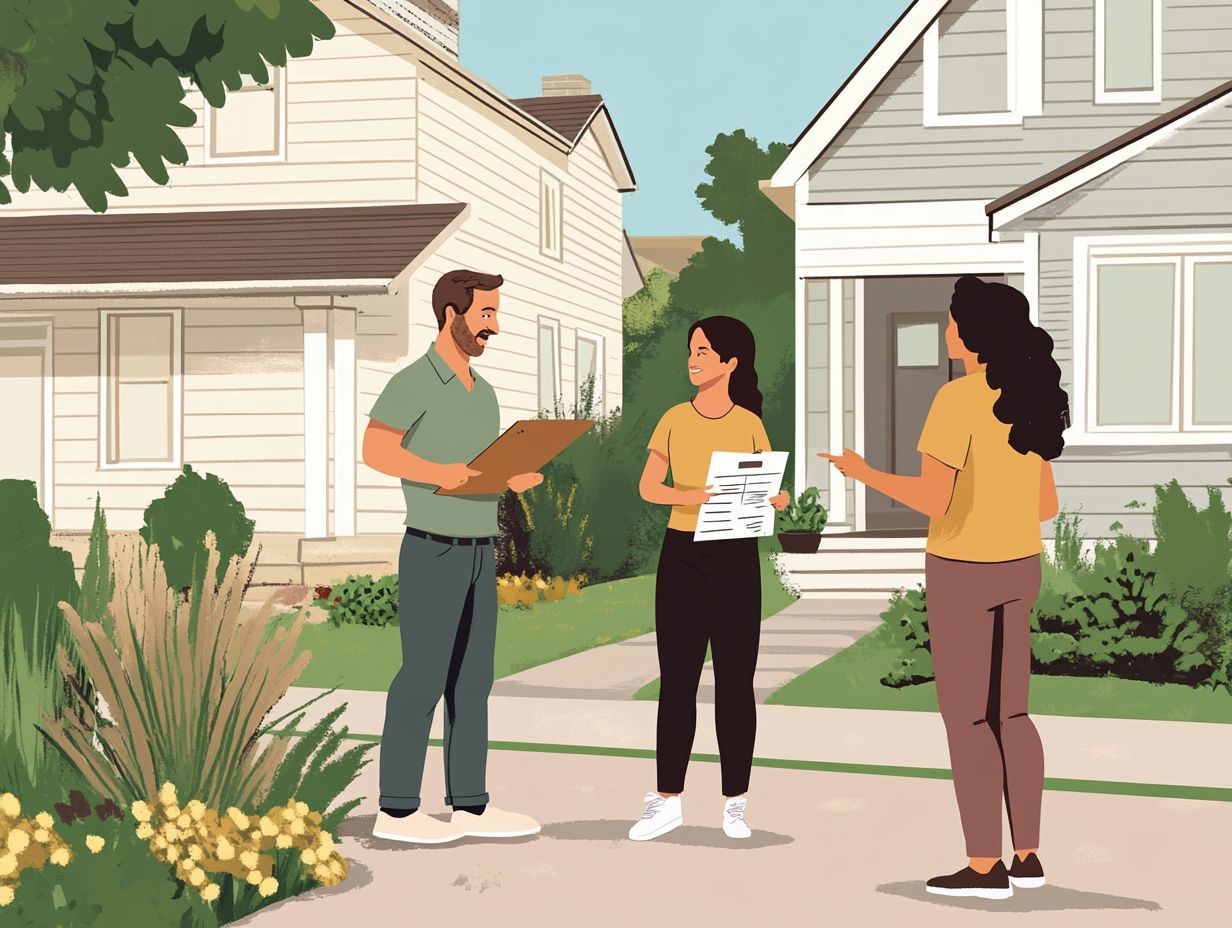
Managing finances as a homeowner requires a careful approach. This involves creating a budget that accounts for property taxes, homeowners association fees, and other essential utilities.
Doing this not only keeps your finances in check but also protects your investment for the long term.
Budgeting for Homeownership Expenses
Budgeting for homeownership expenses is essential for managing ongoing costs like utilities and property taxes without feeling overwhelmed.
By understanding your bills and periodic payments, you can create a structured budgeting plan. Categorizing your expenses into fixed and variable costs gives you valuable insights into where your money goes each month.
Prioritize fixed expenses like mortgage payments and insurance, while remembering that variable costs like repairs can be unpredictable.
It s wise to set aside a financial buffer for unexpected costs that may arise from emergencies or sudden property tax increases. This strategy helps you manage stress and promotes long-term financial stability.
Mastering Property Taxes and HOA Fees
Understanding property taxes and homeowners association (HOA) fees is essential for homeowners. These financial obligations can significantly impact your budget and your compliance with community standards.
These costs represent recurring expenses that must be incorporated into your financial planning. Local regulations can change from year to year, affecting your financial obligations.
It’s crucial to know how property tax assessments are determined, which are generally based on the value set by the local government for tax purposes and local tax rates. You should also be aware of any applicable HOA fees.
These fees support essential community services and amenities that enhance your living experience.
As you engage with your community, you ll likely become more aware of how these financial commitments foster cohesion and uphold property values. This makes informed budgeting strategies essential for your long-term stability.
Preparing for Natural Disasters
Preparing for natural disasters is a crucial part of home safety and risk management. It allows you to protect your family and property while contributing to your community’s well-being during emergencies.
Steps to Protect Your Home and Family
Taking proactive measures to safeguard your home and family from natural disasters involves implementing essential safety precautions and engaging with your community for thorough disaster preparedness.
As a homeowner, consider reinforcing your structure by upgrading your roof, securing windows, and strengthening your foundation to withstand potential hurricanes or earthquakes.
Crafting a well-organized emergency plan that outlines evacuation routes, communication strategies, and supply kits can significantly enhance your safety.
Community engagement is vital; when neighbors unite, they can share resources and knowledge, fostering a sense of collective strength during crises.
By understanding local risks and forming disaster response teams, you not only protect your own home but also contribute to a resilient neighborhood capable of weathering the storms ahead.
Frequently Asked Questions
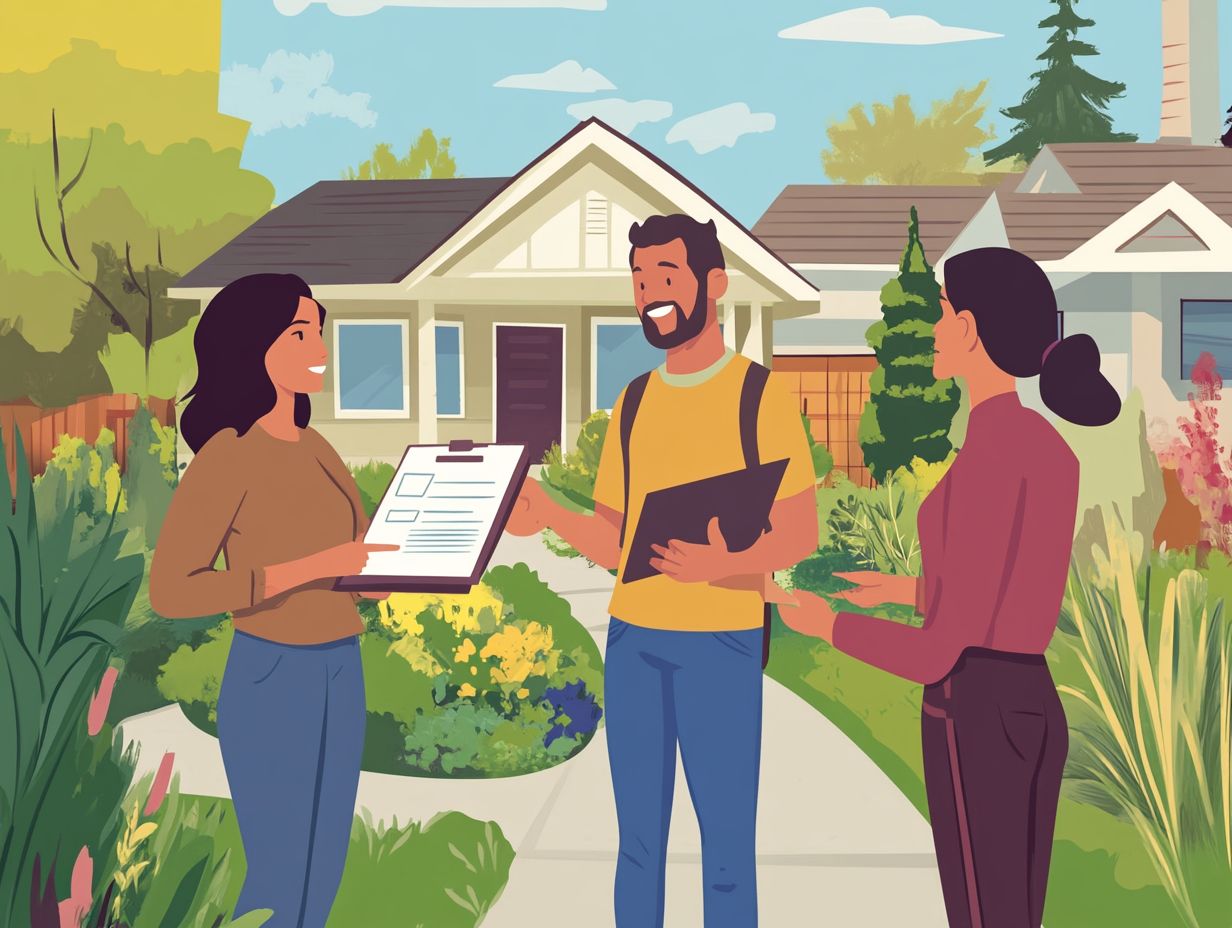
What do homeowners need to know about their responsibilities?
Homeowner responsibilities refer to the tasks and duties that homeowners are expected to fulfill to maintain and manage their property.
What are some common examples of homeowner responsibilities?
Common examples include paying property taxes, maintaining the property’s exterior and interior, ensuring the property is safe and up to code for occupants, and managing necessary repairs or renovations.
Do homeowner responsibilities differ by location?
Yes, homeowner responsibilities can vary based on location and regulations set by governing authorities. For example, homeowners in an HOA may have additional responsibilities compared to those who do not live in one.
What are the consequences of neglecting homeowner responsibilities?
Neglecting these responsibilities can lead to fines from local government, decreased property value, and potential safety hazards for the homeowner and their neighbors.
Are homeowner responsibilities transferable?
Homeowner responsibilities are typically non-transferable, meaning they cannot be passed on to someone else. When a property is sold, the new homeowner assumes all responsibilities associated with the property.
How can homeowners stay informed about their responsibilities?
Homeowners can stay informed by regularly reading their local and state laws, attending HOA meetings if applicable, and keeping communication open with their property management company or landlord.

